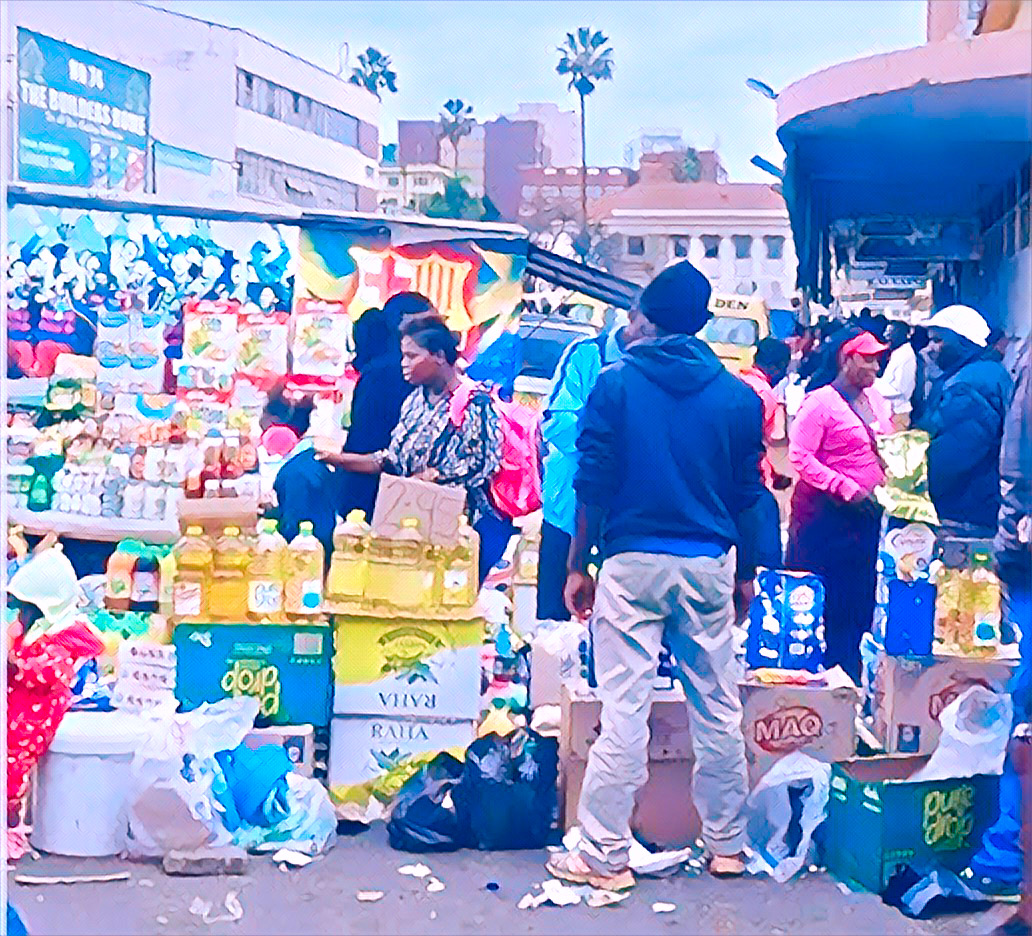In Harare, the city council’s new set of by-laws targeting informal traders has ignited a potential crisis in the central business district (CBD), where many locals depend on street vending for their livelihood. The by-laws, which prohibit vending without a valid permit or lease and ban the use of pushcarts and street butcheries, have sparked a backlash from the community and advocacy groups who see them as insensitive to the economic hardships facing Zimbabwe’s capital.
Samuel Wadzai, executive director of the Vendors Initiative for Social and Economic Transformation, expressed significant concerns about the impact of these laws on the city’s informal economy. “These laws will definitely have a huge negative impact on people who survive through vending and informal work, given the status of the economy,” Wadzai stated. He criticized the timing of the by-laws, arguing that in an economy where many are barely surviving, restricting informal trading could push many into deeper poverty.
Wadzai plans to engage with the city council to explore solutions that could protect the livelihoods of informal traders without compromising the city’s need for order and regulation. “Our view is we need by-laws that are humane, by-laws that are in sync with economic realities of the country,” he added, signaling a readiness to propose alternatives that would not disproportionately harm the most vulnerable.
Wisborn Malaya, a representative for the informal traders, emphasized that the traders were not consulted before the by-laws were implemented, which has been a sore point leading to perceptions of the laws as top-down impositions that ignore the realities on the ground. Malaya highlighted the lack of consideration for the traders’ circumstances and the broader implications for employment and food distribution in the city. “The city should designate strategic places for pushcart traders to operate from in an orderly manner using a four-arrow zoning system,” he suggested, offering a potential compromise that would organize street vending more effectively and allow the city to monitor and license vendors without significant conflict.
The informal sector’s frustration is compounded by the city council’s decision to also target noise pollution, banning the use of hailers and the playing of loud music that many traders rely on to attract customers. This part of the by-laws, while intended to reduce noise in the CBD, adds another layer of restriction that could impact the visibility and sales of small-scale traders.
The newly introduced by-laws also include a ban on street butcheries within the CBD, a move aimed at cleaning up the streets but also impacting those who rely on these setups for their meat supply and livelihood. This broad sweep of restrictions reflects the council’s intent to sanitize and regulate commerce within the city’s core but also highlights a failure to balance regulatory goals with social and economic considerations.
This conflict comes at a time when Zimbabwe is grappling with high unemployment rates and economic instability, which has made informal trading a critical safety net for many of Harare’s residents. Eradicating or heavily restricting this sector could not only lead to increased unemployment but also exacerbate food insecurity and poverty levels.
The city’s stance and the ensuing public outcry reflect a broader struggle between urban planning and the survival tactics of a population still reeling from economic challenges. As Malaya pointed out, the solution lies not in stringent regulation but in smart, empathetic governance that recognizes the role of informal traders in the urban ecosystem.
The response from city officials to the traders’ grievances and proposed solutions will be crucial in determining the future of Harare’s CBD and its economic landscape. The debate over these by-laws is not just about vending but about how urban spaces are shared and governed in the face of economic adversity. It raises fundamental questions about the role of local government in either supporting or stifling economic opportunities for its most vulnerable citizens.
In summary, as Harare’s city council attempts to enforce new by-laws to regulate informal trading within the CBD, the response from the community highlights a critical need for policies that consider the economic realities many citizens face. Moving forward, a balanced approach that includes stakeholder engagement and flexible policy adjustments could help mitigate the negative impacts on informal traders while achieving the council’s goals of a cleaner and more orderly city environment.
Source: Newsday


